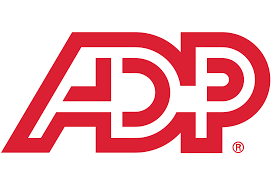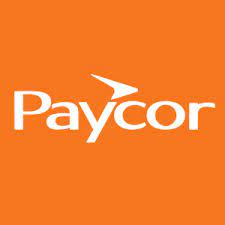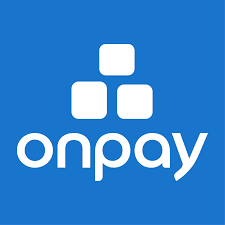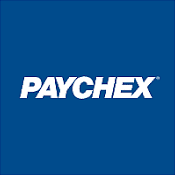
How Much Does Payroll Outsourcing Cost?
Buyer’s Guide: Understanding the Costs of Payroll Outsourcing
Aside from a nominal monthly base rate of $29-$40), most businesses are surprised to learn they can outsource their payroll for a little as $4 to $6 per employee.
Outsourcing payroll services can be a strategic business decision that not only helps improve efficiency, but can also provide a cost-effective solution to managing your company’s payroll. It can free up valuable time and resources that can be better utilized to grow your business.
When considering outsourcing your payroll, one crucial factor to understand is the cost involved. The cost of outsourcing payroll varies significantly depending on several factors, including the size of your business, the complexity of your payroll, and the services you need. Here’s a detailed guide to understanding the costs associated with payroll outsourcing.
Calculating the Costs of Payroll Outsourcing
1. Base Pricing
Most payroll outsourcing companies have a base fee that can range anywhere from $20 to $100 per month. This base fee often covers a specific number of employees and includes basic payroll services like processing payroll checks and calculating taxes.
2. Per-employee Costs
Beyond the base fee, many providers also charge a per-employee fee. This typically ranges from $2 to $15 per employee per month. Therefore, the more employees you have, the higher the cost of outsourcing your payroll.
3. Pay Cycle Costs
Some providers charge fees based on your pay cycle. If you pay your employees weekly, you might pay more for payroll services than if you pay them bi-weekly or monthly because the payroll provider has to process payroll more often.
Featured Payroll Providers
Check out these top payroll brands, and compare pricing and see how much you might save today.

ADP

Paycor

Insperity

OnPay

Gusto

Paychex
Compare Payroll Cost By Company (Chart)
in the below chart, you can see several of the popular payroll companies, their features, and they’re starting price.
| Payroll Service Provider | Features | Starting Price | Include Tax Filing & W2s |
|---|---|---|---|
| OnPay | W-2s, 1099s, and year-end filings included | $40/month + $6 per employee | YES |
| Gusto | Full-service single-state payroll including W-2s and 1099s | $40/month + $6 per employee | YES |
| ADP Run | Direct deposit, Automatic check signing, Paycheck printing and delivery, Tax filing | $29/month + $5 per employee | YES |
| Paychex | One-on-one support to tackle business needs, Employee training and development system | $39 plus $8 per employee per month | YES |
| Justworks | Payments & Payroll, Compliance Support, HR Support & Consultation, Reporting Tools | $50 per month plus $8 per user | YES |
| TriNet | Everything in Payroll Tax Compliance Manager, Prepare company payroll runs per cadence of pay frequency | Varies | YES |
| Wave Payroll | W2/W3 forms, 1099-MISC form generation at year-end, as well as tax payment reminders. | $40 plus $68 per employee per month | YES |
| Paycor | Proactive alerts and compliance warnings directly on your Paycor homepage, including missing or invalid tax IDs, tax recommendations | $99 plus $5 per employee per month | YES |
| SurePayroll | 6 Months Free | $20 plus $4 per employee per month | YES |
Additional Factors Affecting Payroll Outsourcing Costs
Several factors can influence the cost of outsourcing your payroll. Here are the most common ones:
1. Number of Employees
The size of your workforce directly impacts the cost of payroll services. More employees mean more complexity and time for processing, and hence, higher costs.
2. Payroll Complexity
The complexity of your payroll also influences the cost. Do you have full-time, part-time, contract, or freelance employees? Do you provide overtime, bonuses, or commissions? Are there varying pay rates and pay schedules? All these factors increase the complexity of the payroll process and can potentially affect the cost.
3. Additional Services
If you require more than just basic payroll processing, your costs may increase. Many payroll companies offer additional services such as tax filing, direct deposit, check mailing, benefits and retirement plan administration, HR services, time and attendance solutions, and more. Each additional service will add to the overall cost.
4. State and Local Taxes
If your business operates in multiple states or localities, the cost of payroll services may increase. Managing and complying with different state and local tax laws can be time-consuming and complex, which can result in additional charges.
5. Errors and Corrections
Errors can happen, and when they do, they can come with additional costs. Some providers will charge for each correction made if it’s an error made by the employer. Therefore, ensuring that all data provided to the payroll provider is accurate can help avoid these extra costs.
While outsourcing payroll does come with costs, it’s important to consider the value and savings it can bring to your business. It can save you from spending countless hours managing payroll, ensure your company stays compliant with laws and regulations, and free up time to focus on strategic initiatives. Always take time to understand the pricing structure of the payroll companies you’re considering. It’s a good practice to get quotes from multiple providers before making your decision.
Remember that the cheapest option isn’t always the best. Consider the reputation, reliability, customer service, and comprehensive services of the provider. The right payroll outsourcing company should not only meet your budgetary needs but also provide seamless services that can scale with your business. By carefully considering your business needs and understanding the associated costs, you can make an informed decision about outsourcing your payroll services.

Choosing the Right Payroll Provider
When evaluating potential payroll providers, it’s vital to assess your company’s specific needs. Here are some considerations:
1. Expertise and Compliance
The payroll provider should have a solid understanding of payroll laws and regulations and the expertise to ensure compliance. They should manage federal, state, and local tax filings and keep up-to-date with any changes in legislation.
2. Customer Service
Excellent customer service is a crucial factor. There may be times when you need immediate assistance or have questions that need addressing. A good provider will offer multiple channels of communication such as phone, email, or live chat, and be able to provide quick and efficient solutions.f
3. Technology and Integration
Consider the provider’s technology and the ease of integration with your current systems. An ideal payroll provider should offer a cloud-based platform for easy access, provide accurate and real-time reporting, and integrate with your current HR, time tracking, and benefits systems.
4. Scalability
As your business grows, your payroll needs will change. Choose a provider that can scale its services to accommodate your growing needs. Whether it’s a sudden increase in employees or expanding your business to different states or countries, your provider should be able to handle these changes seamlessly.
5. Transparency in Pricing
A reliable provider will be upfront about all costs associated with their services. They should provide a detailed breakdown of charges and explain any additional fees that may arise due to specific scenarios.
The Price-Quality Balance
While cost is an important consideration, it should not be the only factor in your decision. A cheap service that doesn’t meet your needs or leads to errors and compliance issues could end up costing more in the long run. It’s essential to find a balance between the price you’re willing to pay and the quality of the service you’ll receive.
Negotiating the Cost
Once you have shortlisted potential providers, consider negotiating the price. Many providers may be willing to customize their offerings to suit your budget and needs. Before negotiating, make sure you understand exactly what services you need and what you can do without. This will give you a better position to discuss the price and possibly get a better deal.
Outsourcing payroll services can be a significant investment, but it’s often a necessary one. It can improve efficiency, reduce errors, and allow you to focus on other important aspects of your business. By understanding the costs involved and considering the factors that influence these costs, you can make a well-informed decision that is beneficial for your business in the long run.
The Value of Payroll Outsourcing
While the costs of payroll outsourcing are an important consideration, the benefits can greatly outweigh these expenses. Here are a few ways payroll outsourcing adds value to your business:
1. Time Savings
Processing payroll internally can be a time-consuming task. Outsourcing allows you and your staff to focus more on strategic activities, improving productivity and profitability.
2. Expertise and Compliance
Payroll companies have a comprehensive understanding of tax laws, regulations, and changes. This expertise can help mitigate risks associated with payroll errors and tax penalties.

3. Cost Savings
Outsourcing payroll can often be more cost-effective than hiring an in-house team. You eliminate the costs related to hiring, training, and retaining payroll staff, along with costs associated with payroll software and updates.
4. Enhanced Security
Data breaches can be costly and damaging to a company’s reputation. Payroll companies typically invest in state-of-the-art systems to protect your sensitive data, offering a more secure solution than most businesses could provide in-house.
Preparing to Outsource Payroll
To ensure a smooth transition to a payroll outsourcing provider, consider these steps:
1. Understand Your Needs
Take an inventory of your current payroll process, identifying what’s working and what’s not. Determine the services you need from a payroll provider and those you’d like to retain in-house.
2. Prepare Your Data
Ensure your payroll data is accurate and up-to-date. This includes employee information, pay rates, and tax information. Inaccurate data can lead to mistakes in the payroll process and additional costs.
3. Plan the Transition
Coordinate with your chosen provider to determine a transition plan. This should include timelines, responsibilities, and a contingency plan in case of issues.
Evaluating Potential Providers
Once you’ve decided to outsource and prepared your data, take the time to thoroughly evaluate potential providers. You should consider:
1. Client Testimonials and Reviews
Find out what other businesses say about the provider. Look for testimonials or reviews online or ask the provider for references.
2. Company Reputation and Experience
Research the provider’s background, including how long they’ve been in business, their client base, and their expertise in your industry.
3. Terms and Conditions
Review the terms and conditions of the contract. Ensure you understand the scope of services, costs, and how disputes or service issues are handled.
4. Data Security
Inquire about the provider’s security measures and policies. This includes data encryption, secure data transmission, and backup and recovery plans.
In conclusion, outsourcing payroll services is a significant decision that can have a profound impact on your business operations. By understanding the associated costs and the factors influencing these costs, you can make an informed choice that will benefit your business in the long run. This guide should assist you in navigating the costs of payroll outsourcing, helping your business achieve improved efficiency and productivity.